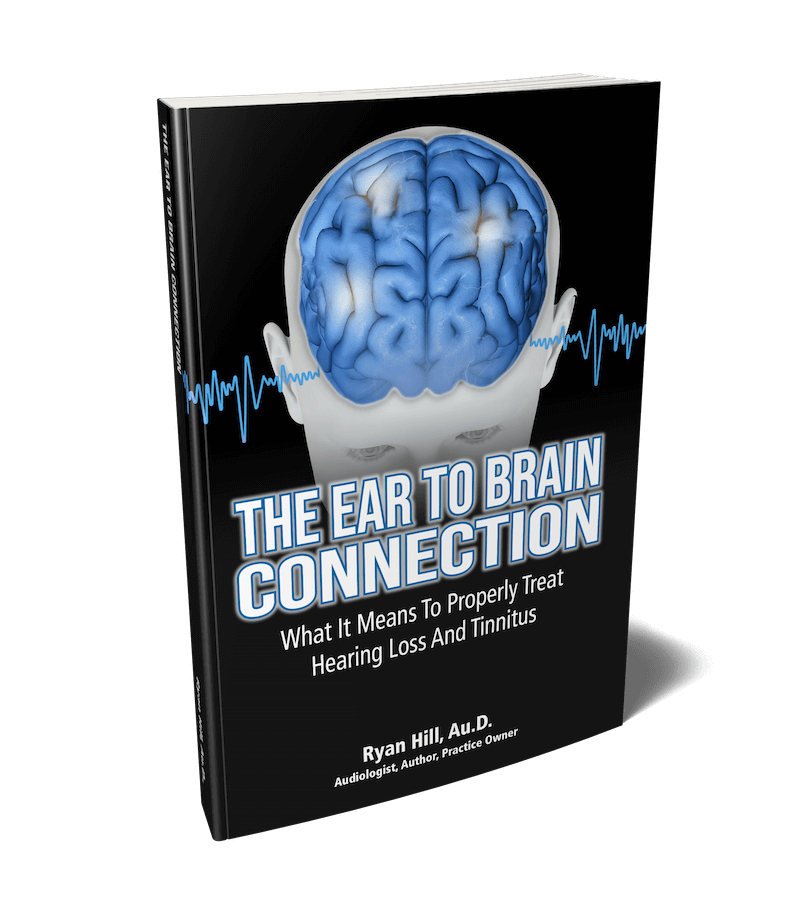
We know that hearing loss can come with emotional difficulties. When your sense of hearing is impaired, life becomes more complicated. You may have trouble communicating with others, putting a strain on your relationships and even simple day-to-day interactions. You might feel isolated or lonely. But the issues may run deeper. New research suggests hearing loss may have an effect on mental health as a troubling link emerges between hearing loss and depression.
Undiagnosed and Untreated
The stigma against mental illness that was prevalent in years past is slowly being lifted. As psychiatric care advances, we?ve gained a greater understanding of these issues and the ability to talk about them openly. There are more, and more effective, treatment options available for a wide range of mental health issues than ever before.
Yet as with hearing loss, many people living with depression go without treatment. That is, if they?ve even received an official diagnosis. The Depression and Bipolar Support Alliance estimates that despite high success rates, nearly two in three people with depression do not actively seek or receive any treatments.
Why? Many people still feel embarrassed to seek help when they experience depression. Others may not fully understand what they are feeling. They might not know that help is available or how to find it. Depression can also manifest as a lack of motivation, still another barrier to seeking treatment.
This sounds very familiar to us. Hearing loss often goes untreated, too: the CHC estimates that in the United States alone, 15 million people avoid seeking help when suffering from a hearing loss. When they do seek help, they wait an average of seven years before doing so – despite effective treatments that can vastly improve their quality of life. Like a mirror image of depression, hearing loss can be a source of embarrassment for some. Those who do want help may not know where to find it or see their hearing loss as a big enough problem to do so.
What Is Depression?
While people with the conditions exhibit similar behaviors when it comes to seeking treatment, hearing loss and depression may actually be linked in the mind. To understand that, we first need to understand depression.
Depression is commonly thought of and portrayed as a lingering sadness. But sadness is just one of many facets of a serious and complex mood disorder that needs treatment. According to the National Institute on Aging, symptoms of depression can affect how you feel, think, and act. It can cause you to lose your appetite, overeat, or stop maintaining a regular meal schedule. You might lose interest in activities you once enjoyed. You may have difficulty focusing on tasks or experience a total lack of motivation. Depression can cause you to sleep too much or keep you from sleeping at all. You may feel isolated and have difficulty interacting with others. Some people experience thoughts of death or suicide, with or without a plan to follow through.
These symptoms can occur with or without a feeling of sadness or hopelessness. Depending on the type of depression you experience, they can be persistent or come in waves that may or may not be related to things happening in your life. And it?s no uncommon illness. The CDC found around eight percent of adults in the United States over age 20 experience some form of depression.
The Connection Between Hearing Loss and Depression
Depression can be exacerbated by other ailments – including, it seems, hearing loss. People who live with hearing loss often have more difficulty communicating with others and participating in social activities. This can cause one to feel socially isolated, which can in turn lead to depression or worsen an existing case of it.
A National Institute on Deafness and Other Communication Disorders study gives weight to this idea. Of the participants in the study, about five percent of those without hearing problems lived with depression. But as hearing loss increases, so does the prevalence of depression: over 11 percent of those with hearing loss reported experiencing depression as well.
Interestingly, a moderate hearing loss seems to have a greater correlation with depression. Dr. Chuan-Ming Li, a NIDCD researcher and the author of the study, found that ?the prevalence of depression increased as hearing difficulty became greater, i.e. from ?excellent? hearing to ?a lot of trouble? but decreased among those who self-reported as ?deaf.?? He hypothesized that this may be because those with severe or profound hearing loss are more likely to have already received care, while people with moderate hearing loss are at a higher risk of going untreated.
What should you do?
Just like hearing loss, depression is not something you can ?snap out of?. Both conditions are ones you will likely deal with in some form for the rest of your life. But they?re both highly treatable, as well.
If you?re experiencing depression, you should first seek treatment for that. While hearing loss may contribute to depression, it shouldn?t be seen as a cause. Your first step to finding treatment for your mental health should be to consult with your primary care professional. They will be able to help you find solutions and can refer you to other physicians as needed.
Consider a hearing screening as another step in your mental health treatment. While it should not replace professional psychiatric care, it may help solve a problem that is contributing to the depression you experience. A hearing aid can help you break free of feelings of social isolation caused by hearing loss. The risks of untreated hearing loss are not limited to depression – treating a hearing impairment with hearing aids can improve your quality of life in other ways, too.
Depression is an illness that must be taken seriously and needs to be treated professionally. If you or are loved one are experiencing thoughts of suicide, call the National Suicide Prevention Lifeline at 1-800-273-8255. The Lifeline is a confidential 24/7 service that provides support as well as prevention and crisis resources for anyone in distress and the people who care about them. It?s a free resource that can help save a life.

